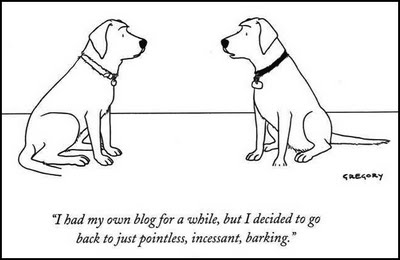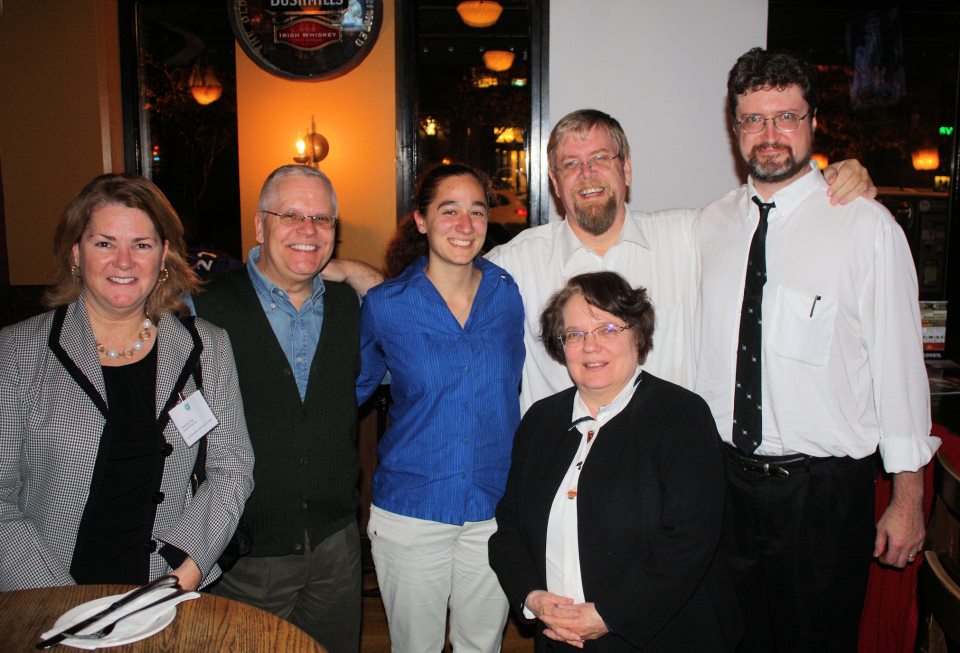This weekend, I went up to Baltimore to attend a session of the Fall General Assembly of the U.S. Conference of Catholic Bishops (USCCB). The session was called, “An Encounter With Social Media: Bishops and Bloggers Dialogue” and included a presentation of survey results about Catholic blog reading habits, a panel discussion, small group discussion, and then a period where the bishops asked questions of the bloggers en masse and then we switched and asked them questions.
They encouraged us to livetweet the event using the hashtag #bpsblog, which I used to double check if I were the youngest person in the room. (I was tied with Anna Williams, a junior fellow at First Things). Anyway, as a young person, I get a little nervous when adults express generic enthusiasm for blogs and social media. “Yes! Yes! More of this thing! Try to remember to post frequently.”
Content aside, what makes for a good blog post?
There’s not always enough discussion of what to post, or how it might differ from the writing that you’re already doing in your essay for the parish bulletin or whatnot. I got to talk a bit about form and content at the meeting, and some of it is applicable outside the Catholic blogosphere.
The first rule of a good blog post is that, if you tried to transfer it to another format, it wouldn’t work as well. So, what are the unique markers of blogging as a medium? I think the most important fact is that, when someone is reading your blog, they’re online. That means it’s easy for them to move to a different site or post and keep reading.
So, the magic words are blockquote and hyperlink. What blogs do better than any other medium is to share references for a conversation. Go watch this video, and then discuss. Here’s my take on this article, and here’s someone who disagrees (plus a blockquote and short rebuttal). There was a big argument in the combox of an old post, go check out the whole thing or get up to speed with these key permalinks.
You can write in more conventional styles (like the non-hyperlinked op-ed or essay), and, if the content is good enough, delightful! But if you’re trying to figure out whether to start a blog or what to put on it and you don’t plan to make use of the open-link-in-new-tab advantages, it might be worth asking if it’s actually a blog you want to start.
Oh no, I’m blogging for an institution!
My sympathies! This might be a place where blog-as-aggregator/curator works really well. Lots of the bishops weren’t really sure what a parish or diocesan blog ought to do, and I think Andrew Sullivan’s Daily Dish blog is a good model. Share essays, prayers, art, and commentary from all over the blogosphere and comment/expand/make connections where appropriate.
When this idea came up, several people in the room said that curating links wasn’t authentic enough, and that people come to your facebook page or blog to be close to you. I disagree. Choosing reveals character. I might learn more about someone by looking over their bookshelf than having an awkward, half-hour conversation. And, after looking over the titles on their shelf, I’m probably better prepared to have an interesting coffee klatsch.

Ok, now let’s talk about content…
Looking over the survey results, several people seemed dispirited by the respondents reports that they go online to be entertained. But entertainment and deep content aren’t opposed. I said to one of the other bloggers at the pub that Catholicism (and a lot of other topics) could us a Vi Hart. Hart’s math videos are interesting without being gimmicky, and she doesn’t dumb down her material. Oh, let’s just pause and watch one for a second:
http://www.youtube.com/watch?v=X1E7I7_r3CwI’d love to see someone translate the metaphysics of The Last Superstition into fast-talking doodle-y videos, but, luckily for those of us who can’t draw, that’s not the only way to get people’s attention for abstract-seeming topics. When it comes to talking about ethics and morality, I’ve found that bloggers who do cultural criticism provide great entry points for new or casual readers.
When I write about healthy relationships in the context of Harry Potter, I’m starting from material that people already know and are fluent in. That way, I’m not trying to teach you a whole new language of technical terms before/while we’re having the discussion. And talking about the arts naturally lends itself to this discussion, since we like to pick sides, decide why something seems unrealistic or repulsive, or talk about why we’re so in thrall to beauty and whether that’s ok.
Here’s a list of some of the culture bloggers I really like: Rod Dreher, Alan Jacobs, Noah Millman, Alyssa Rosenberg, and Eve Tushnet. They don’t all blog about culture full time, but I often get a better sense of their philosophy from their theatre and book reviews than any other writing they do. And that’s when I start itching to try it out, pick a fight, or grab a blockquote and a link and talk to you all about it.
Other Patheos bloggers were in attendance for the panel (that’s our post discussion get together shot above), and here’s a linkaround of their reactions and impressions:
- Kathy Schiffer – “Look Out! Catholic Bloggers Take Baltimore by Storm!“
- Deacon Greg Kandra – “The Patheos Posse“
- Mark Shea – “Happy Jollity!“
- Frank Weathers – “The Bloggers Meet The Bishops, On Tape, Via YouTube“
- Thomas L. McDonald – “In Baltimore With Bishops and Bloggers“














